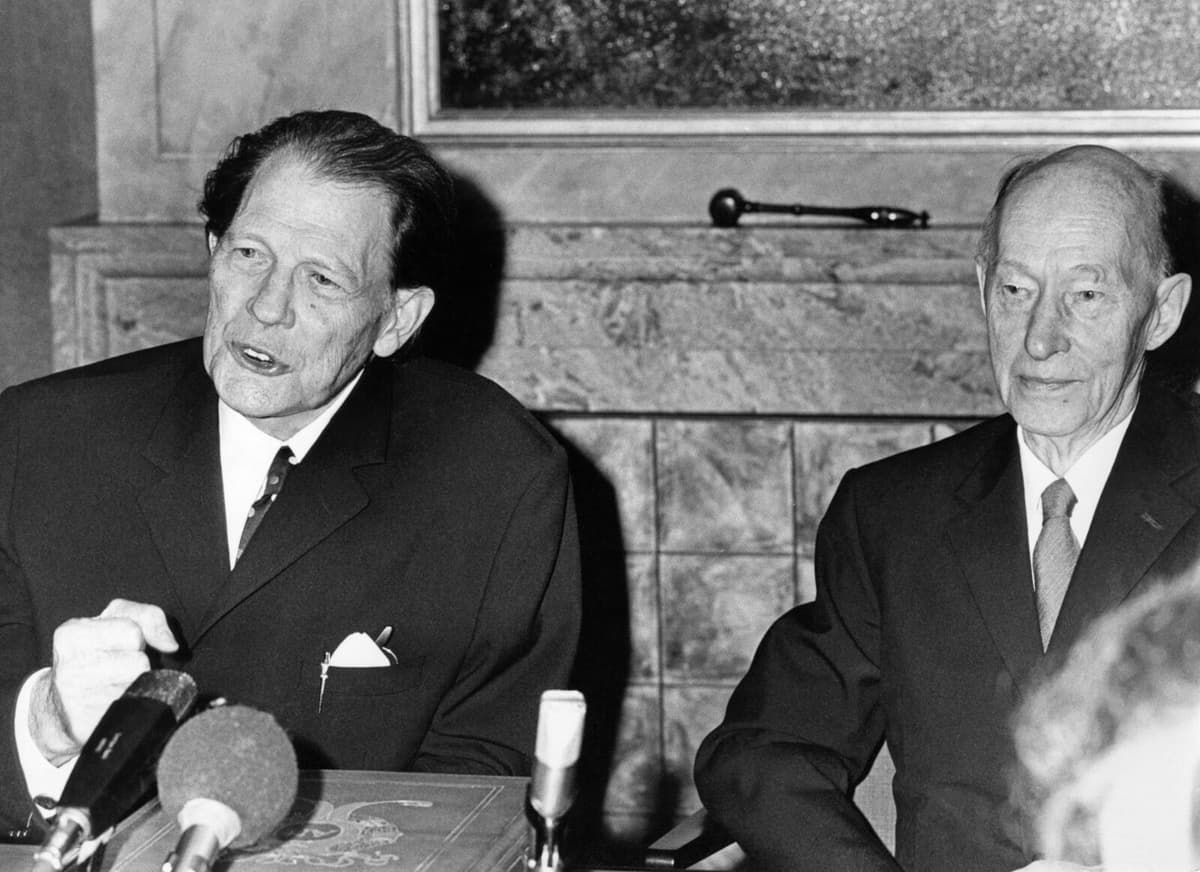The Swedish Nobel Prize was heavily criticized in the Swedish press, particularly by Olof Lagercrantz at Dagens Nyheter, who described it as "a small relapse into nationalism and provincialism".
“A catastrophic decision”, thundered Sven Delblanc in Expressen – a scornful laughter would roll around the world, since the two Swedes were not considered sufficiently translated. Sven-Eric Liedman told Göteborgs-Tidningen that the two were “terribly passé”.
The criticism was heard already before the announcement and at the press conference afterwards, the two prize winners did not express any public joy, according to the SVT documentary “Harry and Eyvind – The Nobel Prize that ruined everything” from last autumn. The attacks in the media took a hard toll on Martinson. Afterwards, the harsh treatment has been cited as a contributing factor to the author taking his life in 1978.
Argued for a Swedish prize
It is now revealed that the Nobel Committee's majority had a shared prize for Harry Martinson and Eyvind Johnson as their first proposal and a shared prize for Nadine Gordimer and Doris Lessing as their second. As a third alternative, Saul Bellow was proposed alone or together with Norman Mailer, and as a fourth, Eugenio Montale. However, Academy member Artur Lundkvist thought that Gordimer and Lessing should receive the prize, which also happened, but not until 1991 and 2007, respectively.
In previous years, the Nobel Committee had referred the question to the Academy. But in 1973, the Committee's chairman Karl Ragnar Gierow paved the way by forcefully arguing that a future Swedish Nobel Prize was possible.
The then three Swedish nominees – Harry Martinson, Eyvind Johnson, and Vilhelm Moberg (who died the same year) – were all worthy of it, according to Gierow, who wrote that they artistically "held their own" against the final candidates in 1973. To never seriously discuss them would mean that any thought of a Swedish Nobel Prize winner was excluded "in the foreseeable future", he emphasized.
Lundkvist opposed
In a now publicized statement from 1972, he describes them as "at least comparable not only with those we primarily discuss" but also with previous winners.
Until then, the discussions about a Swedish Nobel Prize had mainly concerned the suitability of awarding one's own. Artur Lundkvist had in 1972 opposed a Nobel Prize to Johnson and Martinson on these very grounds.
No internal criticism emerges in the statements that the Academy has now made public. Gierow shares the concerns about "incurring sharp foreign criticism" but is "far from certain" that the Academy's decision would be "determined by outsiders' presumed comments".
Harry Martinson received the Nobel Prize for "for an authorship that captures the dewdrop and reflects the cosmos". Eyvind Johnson “for a narrative art that in freedom's service surveys lands and times”. Both were authors from humble origins who, according to Karl Ragnar Gierow, enriched literature with "their riches". Both were members of the Swedish Academy.
In 1974, the shared prize had been proposed by member Johannes Edfelt. Eyvind Johnson was nominated by Johannes Edfelt and Pär Lagerkvist, as well as by three foreign professors, Harry Martinson by Johannes Edfelt and Pär Lagerkvist.
Harry Martinson took his life in 1978, and the harsh treatment from parts of the Swedish press after the Nobel Prize has been cited as a contributing factor.
The Swedish Academy decided in 1972 that no member of the Nobel Committee could be nominated for the Nobel Prize. Eyvind Johnson left the committee at the same time. But if no member of the Academy would ever be able to receive the Nobel Prize, it was something one had to think about already when they were elected, pointed out Karl Ragnar Gierow, chairman of the Nobel Committee.






